Overview
A model can have one or more versions, each version:
- Can lock a specific run to track lineage.
- Can be deployed as an internal app.
- Can be deployed in production.
CLI Reference
You can check the complete models CLI reference here or by using polyaxon models --help.
Client Reference
Polyaxon’s ProjectClient library exposes all methods to:
- list_model_versions
- get_model_version
- create_model_version
- patch_model_version
- register_model_version
- copy_model_version
- transfer_model_version
- delete_model_version
- stage_model_version
- pull_model_version
Since v1.18, Polyaxon’s RunClient library exposes a method to automatically promote the run to a model version:
Model version creation
You can create your model versions using the CLI, API, or the UI.
CLI
polyaxon models register -p OWNER_NAME/MODEL_NAME --version VERSION_NAME --description ... --tags tag1,tag2,... --artifacts model-name,env,asset-versionClient
from polyaxon.client import ProjectClient
project_client = ProjectClient(project="ORGANIZATION/bot-detection")
version = project_client.register_model_version(
version="v1",
description="description for this version...",
tags=["prod"],
content={"key": "val", "env": ["package1", "package2"]},
run="f27c0580dcdf4ed7b2f36726c5257ade",
artifacts=["model", "env"],
)Note: You can use
force=Trueto override a previous version registered with the same name.
UI
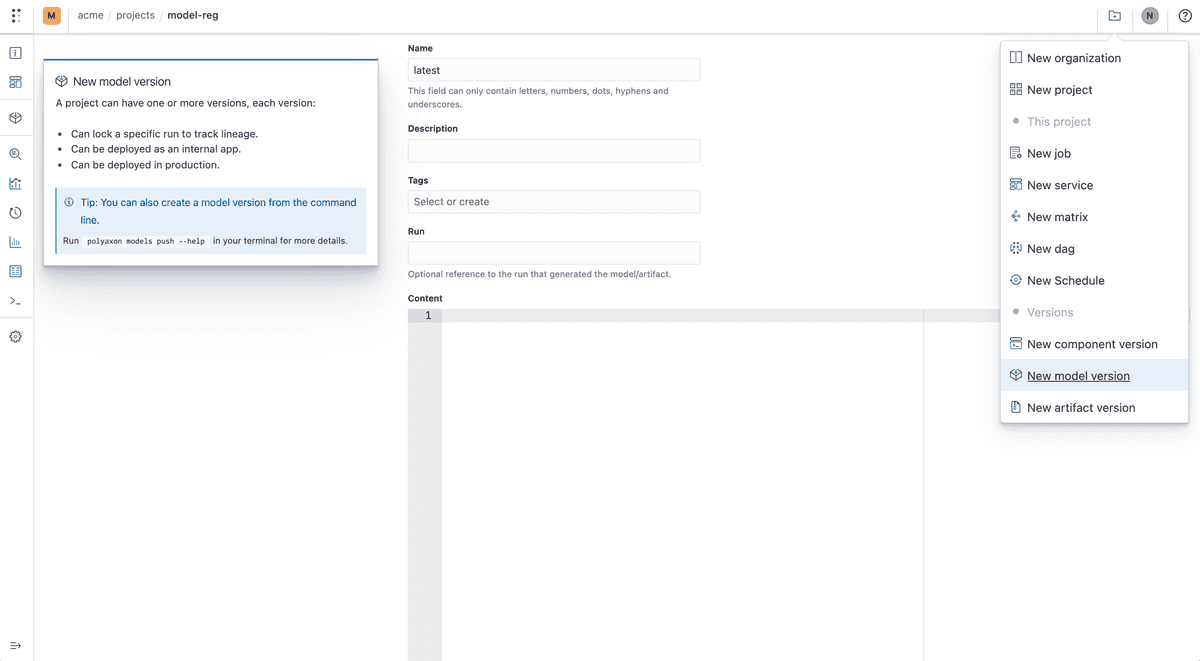
Model version creation from a run
When a user create a run that tracks a model, users can promote a model version directly from a run:
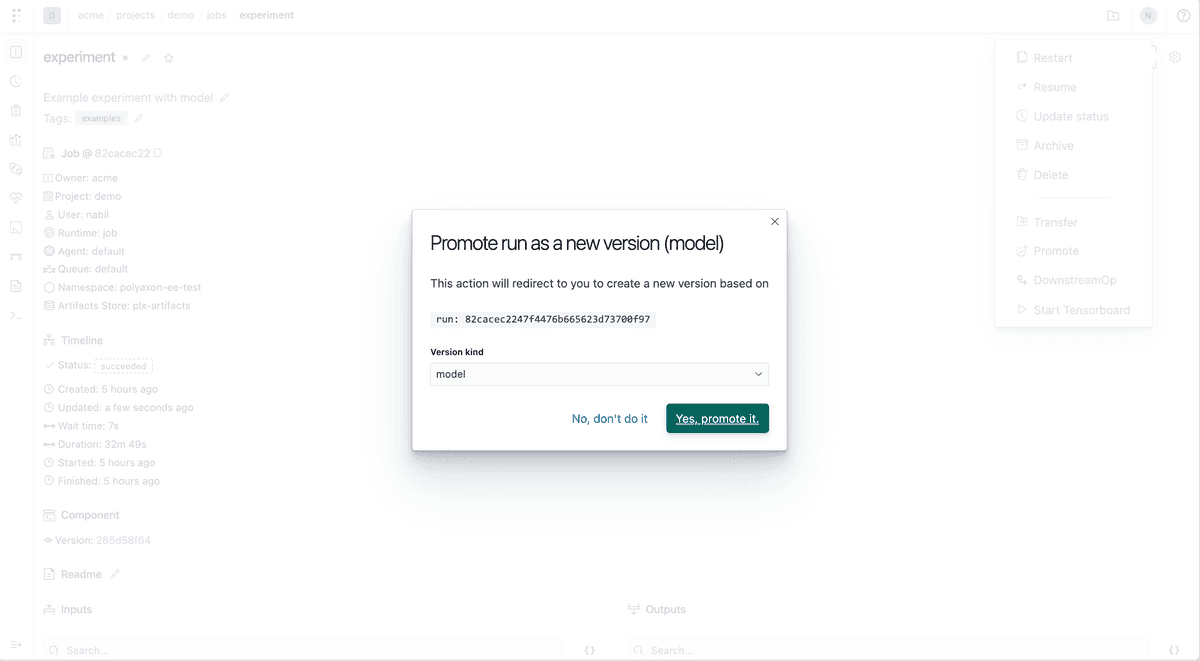
Once a model version is registered, the run will be marked as promoted:
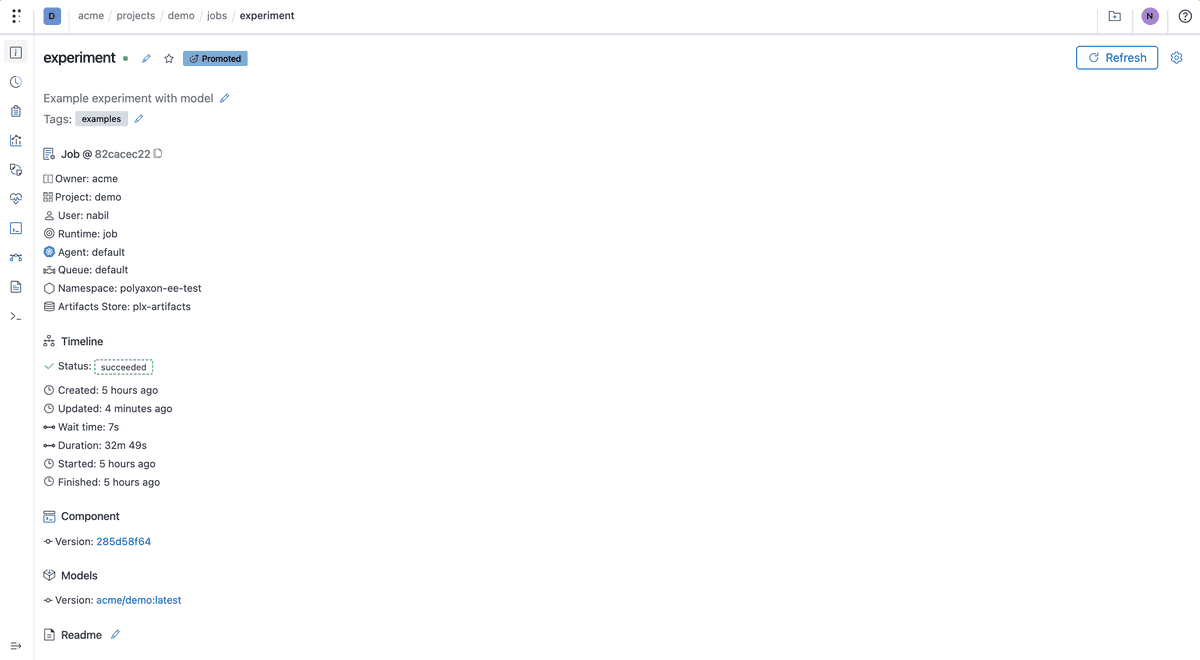
Model version overview and definition
CLI
polyaxon models get -ver VERSION_NAMEClient
from polyaxon.client import ProjectClient
project_client = ProjectClient(project="ORGANIZATION/bot-detection")
version = project_client.get_model_version(version="v1")
print(version)UI
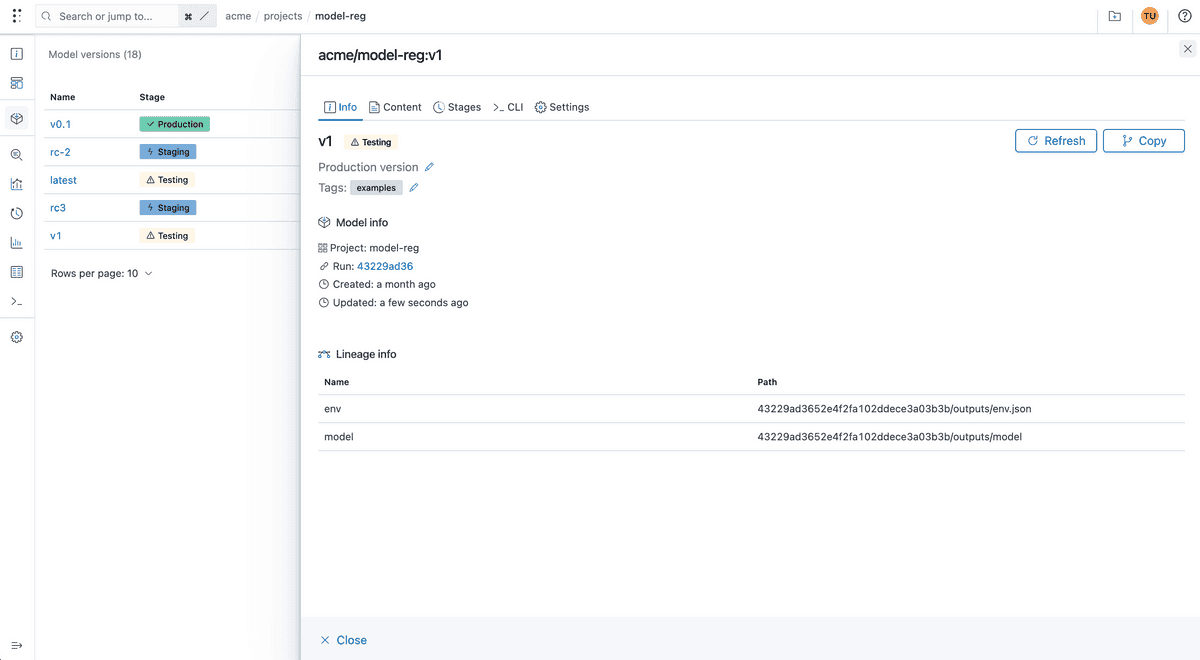
Model version stage changes
You can update the stage of the model version to reflect the production-readiness
CLI
polyaxon models stage -ver VERSION_NAME -to staging --reason ModelTestGithubAction --message "Tests passed and the model was automatically moved to staging" ...Client
from polyaxon.client import V1Stages
from polyaxon.client import ProjectClient
project_client = ProjectClient(project="ORGANIZATION/bot-detection")
project_client.stage_model_version(
version="v1",
stage=V1Stages.STAGING,
reason="AirflowPipelineStageUpdate",
message="Tests passed and the model was automatically moved to staging",
)UI
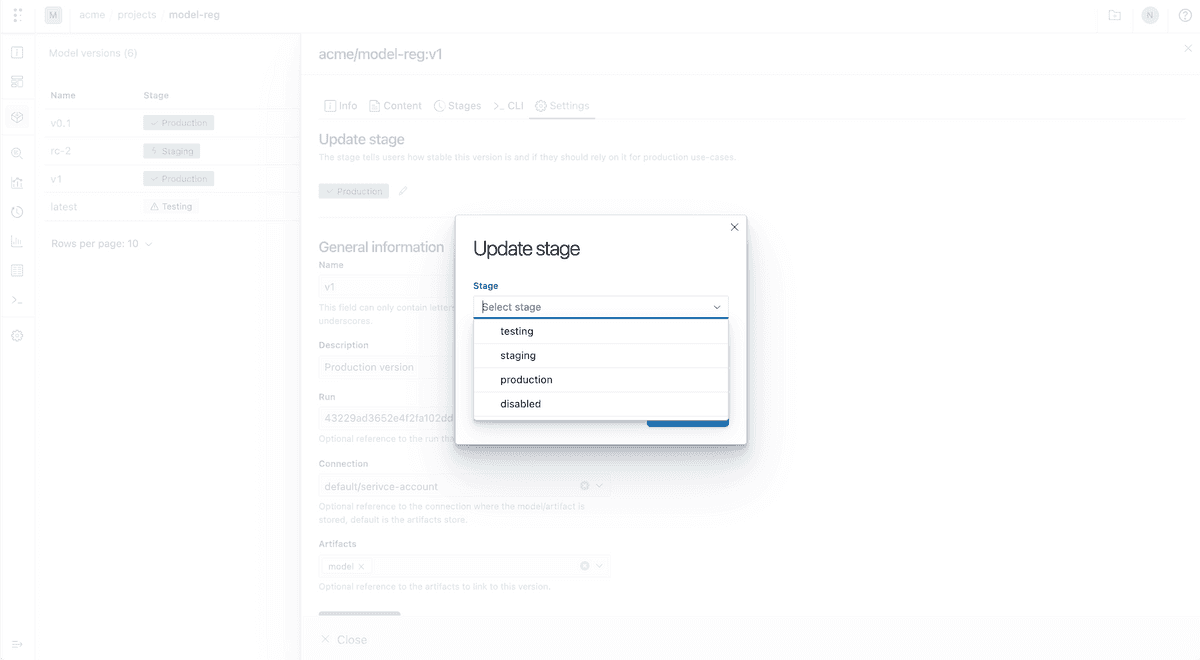
Model version admin
CLI
You can override a model version with push:
polyaxon models register -ver ... --forceOr update specific info:
polyaxon models update -ver ...and delete
polyaxon models delete -ver ...Client
from polyaxon.client import ProjectClient
project_client = ProjectClient(project="ORGANIZATION/bot-detection")
# Update
project_client.patch_model_version(
version="v1",
data={"description": "new description", "tags": ["new-tag1", "new-tag2"]}
)
# Delete
project_client.delete_model_version(version="v1")UI
You can manage a model version using the UI
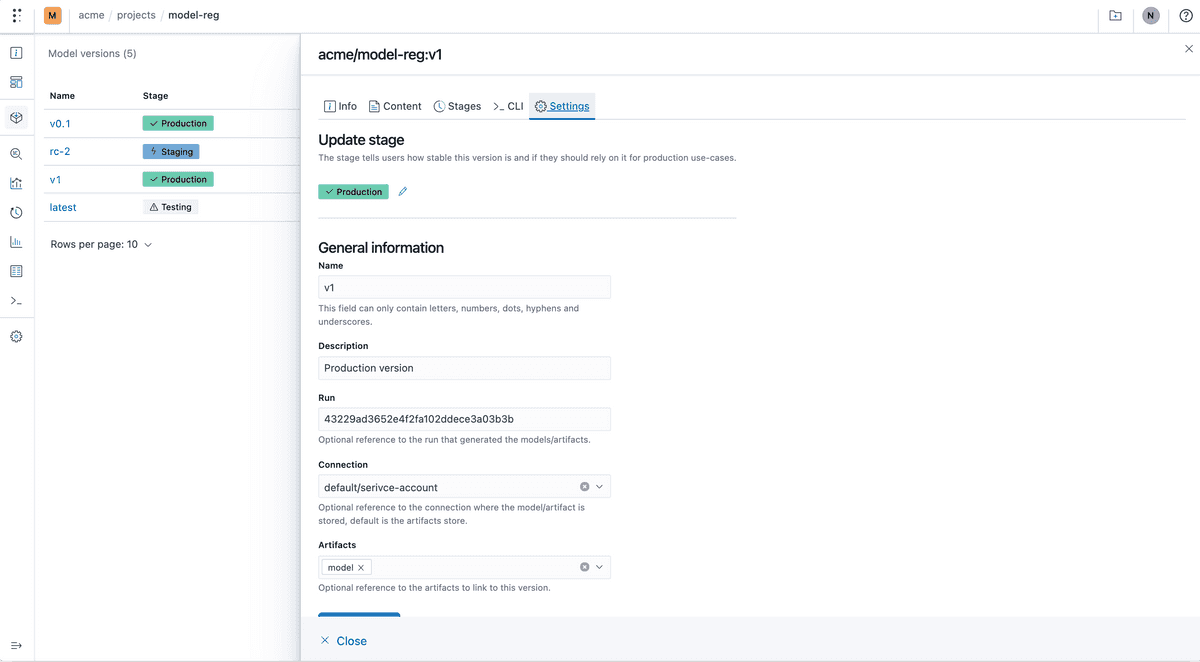
Model version packaging and pulling
CLI
polyaxon models pull -ver VERSION_NAME --helpClient
from polyaxon.client import ProjectClient
project_client = ProjectClient(project="ORGANIZATION/bot-detection")
project_client.pull_model_version(
version="v1",
path="/tmp/path"
)Model version promotion from a run tracking
Client
from polyaxon import tracking
tracking.init()
# Model lineage reference
model_ref = "model"
# Logging the model as pickle
with tempfile.TemporaryDirectory() as d:
model_path = os.path.join(d, "model.pkl")
with open(model_path, "wb") as out:
pickle.dump(gbc, out)
tracking.log_model(model_path, name=model_ref, framework="scikit-learn")
# Promoting the run to a model version
if some_condition:
tracking.promote_to_model_version(
version="rc2",
description="model promoted directly from the run",
tags=["tag1", "tag2"],
content={"key": "value"},
artifacts=[model_ref]
)
# End
tracking.end()